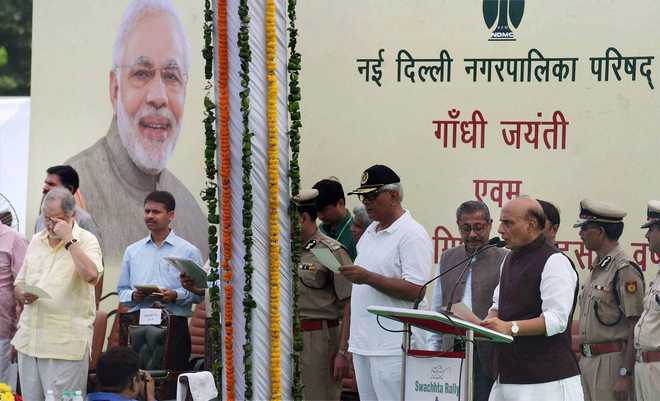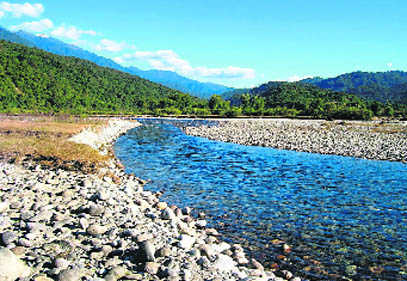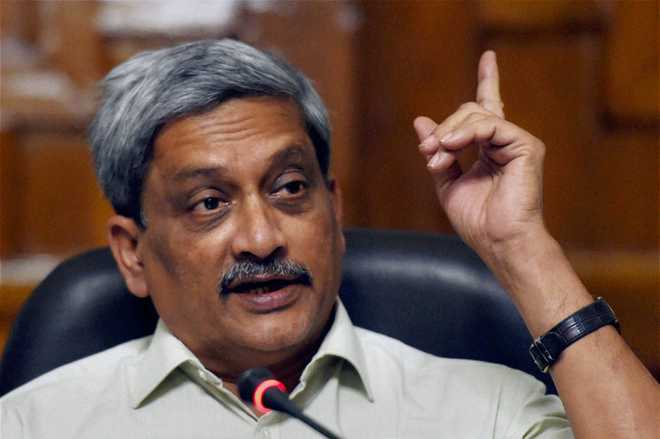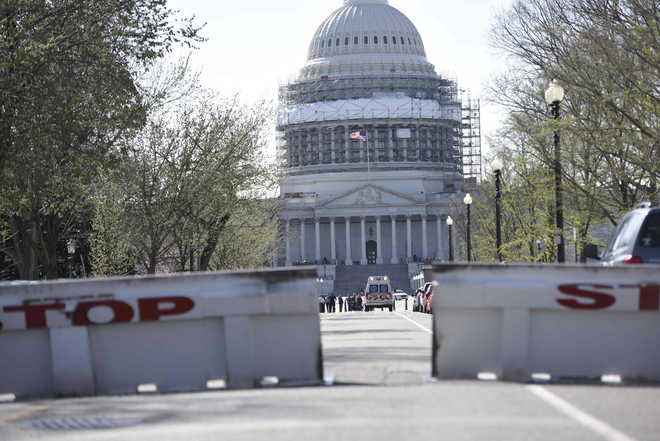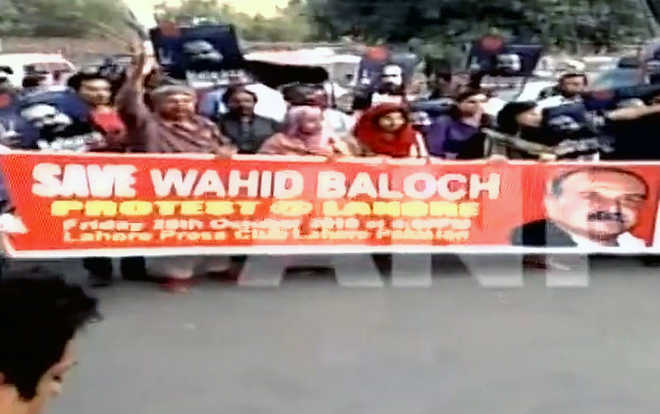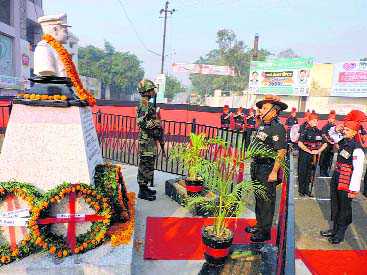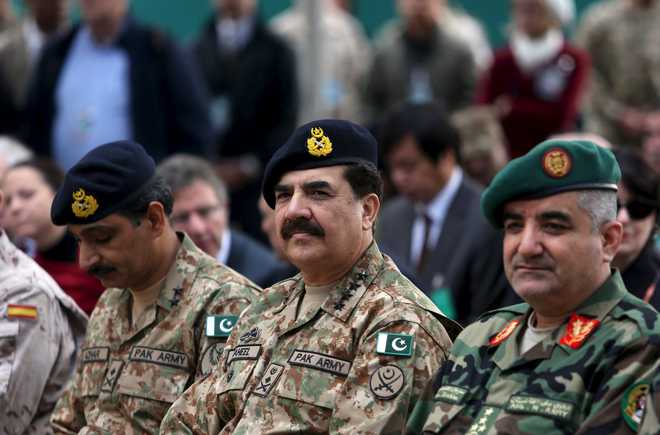 All Powerful: Raheel Sharif has been deciding Pakistan’s foreign policy too.
All Powerful: Raheel Sharif has been deciding Pakistan’s foreign policy too.RELATIONS between Pakistan’s elected government and the country’s all-powerful military establishment become tense and coup prone whenever Nawaz Sharif is elected Prime Minister. This is rather ironical since Sharif entered politics with the blessings of the military in the early 1980s. The then military dictator General Zia-ul-Haq had sought the support of Nawaz’s father — industrialist and steel magnate, Mian Mohamed Sharif — to contribute for the establishment of a new Muslim League Party. General Zia’s military Governor in Lahore, Lt Gen Ghulam Gilani Khan, duly provided the support for Nawaz’s meteoric rise in politics. It was the backing of the military and the ISI chief, Lt Gen Asad Durrani, that enabled Sharif to cobble together an alliance of Islamist parties to prevail over Benazir Bhutto’s Peoples’ Party in 1992.Sharif’s whimsical and authoritarian functioning thereafter led to serious differences with then President Ghulam Ishaq Khan. The President was infuriated by the involvement of Sharif and his handpicked ISI chief Lt Gen Javed Nasir, in the 1993 Bombay bomb blasts. In the meantime, Sharif had developed an acrimonious relationship with his army chief, Gen Asif Nawaz, whose sudden death, attributed to arsenic poisoning, led to suspicions of Sharif’s involvement. Sharif was duly sacked by President Ishaq Khan, but briefly restored to office by the Supreme Court. The army chief, Gen Waheed Kakkar, forced both Sharif and the President, out of office shortly thereafter. Sharif’s relationship with the army was equally stormy in his second term. He peremptorily sacked his highly respected and apolitical army chief, Gen Jehangir Karamat. He was then ousted, jailed and exiled by Karamat’s successor, Pervez Musharraf, following differences over who was responsible for the Kargil fiasco.Sharif’s relations with the army have been no less tumultuous in his third term. Like in the case of his appointment of Musharraf, Sharif erred in this third term by his appointment of Gen Raheel Sharif as army chief. He ignored the fact that General Raheel was a protégé of General Musharraf, who would challenge the PM’s efforts to have Musharraf tried for treason. Raheel Sharif predictably warned not only Nawaz, but also the Supreme Court, to back off from efforts to arrest and imprison Musharraf. His success in this effort only whetted Raheel’s appetite for taking over control of foreign policy, particularly relations with India, Afghanistan and even the US. China duly played on the General’s huge ego, by suggesting that it was the Pakistan army alone that could provide security for its $46 billion ‘One-Belt, One-Road’project.Over the past three years, Raheel Sharif has taken over control of Pakistan’s foreign policy and the country’s internal security. He undermined the successful meeting that Nawaz had with Mr Modi in Ufa by not permitting his DGMO to meet his Indian counterpart. He then undermined any chance of a rapprochement with India by the attack on the Pathankot air base, just after Mr Modi had extended a hand of friendship by visiting Lahore during the wedding of Nawaz Sharif’s daughter. General Sharif has taken over the conduct of relations with Afghanistan to such an extent that when the Taliban, which has links with the ISI across the border, mounts terrorist strikes in Afghanistan, Afghan President Ashraf Ghani speaks to him rather than Nawaz Sharif!General Sharif has shown similar disregard for constitutional norms on issues of internal security. He mounted a large-scale attack on the Pashtun tribal areas bordering Afghanistan, ruthlessly using artillery and air strikes after the Pakistani Taliban attack on the Army School in Peshawar. These operations, named Zarb-e-Azb, have rendered 8,00,000 tribals homeless, with an estimated 50,000 fleeing into Afghanistan. The entire operation was mounted in the face of opposition from both provincial and federal governments and without parliamentary approval. Raheel Sharif showed similar disregard for the views of these governments in his crackdown using the army-controlled Paramilitary Rangers to crush the MQM Party in Karachi. In the meantime, the brutal army repression in Balochistan continues. Despite being lauded as a “saviour” by sections in Pakistan, Raheel Sharif has laid the foundations for prolonged unrest in three of Pakistan’s four provinces. In these circumstances, the Nawaz government hit back with leaks to the Dawn newspaper, alleging that support of the army and ISI for groups like Lashkar-e-Taiba, JeM and the Haqqani Network in Afghanistan had led to the diplomatic isolation of Pakistan, with even “all-weather friend” China expressing misgivings. This sentiment echoed widely in Pakistan’s parliament. The fact that India’s surgical strikes has been welcomed by the US and European parliament and that this has accompanied a boycott of the SAARC Summit in Islamabad, has given Nawaz Sharif more political space to act. He can now move to replace Raheel Sharif, who is due to retire on November 29, with a person of his choice. This will happen, unless, in the meantime, the Supreme Court acts against Nawaz Sharif on allegations of corruption and money laundering, or if a proposed agitation by Imran Khan paralyses Sharif’s government and invites army intervention. Nawaz Sharif may, therefore, name the new army chief well before November 29.General Sharif will likely recommend the most senior officer, Lt Gen Zubair Hayat, presently the chief of general staff, to be the next army chief. Hayat is highly regarded and briefly headed the Strategic Plans Division of Pakistan’s Nuclear Command Authority. But Sharif will be wary of appointing a trusted buddy of General Sharif as the next chief. Hayat could well be “kicked upstairs” to the largely ceremonial, but senior-most post of chairman of the Joint Chiefs of Staff Committee (CJCSC). As the CJCSC heads the Nuclear Command Authority, Hayat’s appointment could be justified on the grounds of his earlier association with it. In that case, Sharif could look lower down the list and could possibly appoint Lt Gen Iqbal Ramaday, who has impeccable family credentials and is presently Corps Commander Bahawalpur, or Lt Gen Qamar Bajwa, said to be a competent officer, who evidently has reservations about extremist jehadi outfits. Bajwa presently holds the same post that Raheel Sharif did before he was appointed as army chief.








